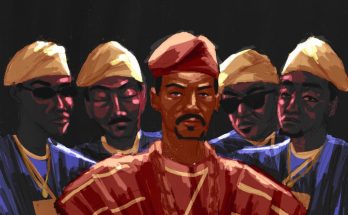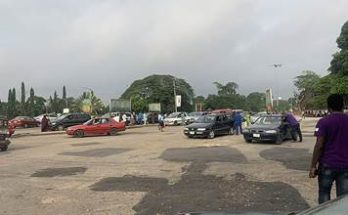“In time of political unrest, visit history to resolve the mess. In time of political harmony, visit history to prevent the mess.” – Wole Soyinka
In avoidance of misconception, “militancy” as used in this article means “the use of favourable and confrontational methods in support of a cause.” My thought to pen down this piece has been goaded by the forthcoming UI SU elections; particularly the race for the number one seat. The battle seems to be between “Revolution” and “Illuminating Change.” Although “Possibility” has really never ceased to be next to us, and “Collective Restoration” has convinced us all to always wear her “TAG.” Meanwhile, it behooves us to scrutinize these aspirants based on their intellectual inclinations and altruism. Equally, we cannot afford the labour of heroes past to be in vain; especially that of the iconic and selfless student, Adekunle Adepeju.
The evolution of Nigerian Students’ unionism was birthed out of selflessness and the struggle for collective interests. Historically, Nigerian Students’ Unionism can be divided into two phases – pre-independence and post-independence. Its evolution began in 1925 under the aegis of the then West African Students’ Union {WASU}, which transformed into the National Union of Nigerian Students (NUNS) and was pioneered by some Nigerian students schooling in London.
The first era was mainly a tussle with colonialism. The pioneers of students’ struggle (ALUTA) at its inception were highly militant, resourceful and seriously committed to the struggle. Without mincing words, the era was characterized by militancy, selflessness, diplomacy and violent but objective actions. Subsequently, the era led to the emergence of nationalist leaders; majority of whom were radical in nature and were also ideological in thought, perception and action.
At the nascent stage of students’ unionism, the period was enhanced and fostered by robust debates, diplomatic maneuverings, passive or total resistance to oppressive tendencies of the institution authority as well as unpalatable government policies. Indeed, those that were in the vanguard of struggle then were highly articulate, intellectually inclined and very dogged in the field of struggle.
Similarly, the early stage of the post-independence struggle was championed by selfless unionists. Although the use of police brutality and other armed forces has been a major hindrance that has lowered the spirit of students’ activists. This can be seen from the police brutality of students that participated in the University of Ibadan riot of 1st February 1971, which eventually led to the death of the students’ union leader, Adekunle Adepeju. Thereafter, the deployment of police to campuses at slightest provocations by the students and the use of fire arms are considered the major causes of dying culture of activism among the students’ union leaders. It behooves us to know that selfless pursuit of students’ activism (through demonstrations/protests e.g. Operation Gowon Must Go of 1974, UNIBEN demonstration of 1976, Ali Must Go crisis of 1978, etc) against military junta, led to the ban of National Union of Nigerian Students (NUNS) and the subsequent formation of the present National Association of Nigerian Students (NANS) in Yaba College of Technology in 1983.
In furtherance of objectivity, so many factors other than the coercive maneuverings by government administrations have led to the slope sliding of students’ unionism in Nigeria. One of such is the strategy used by successive administrations to politicize the students’ union, use of blackmails, infiltrating the ranks and causing division among students’ leaders. Added to this is the dangling of carrots (money) before students’ union leaders which has destroyed the culture of students’ resistance against malignant institution or government policies in the education sector.
Experience has equally shown that lack of understanding of our legal and fundamental rights as students hinders the spirit of militancy and persistency in the pursuit of the objectives of students’ unionism on campus. The dearth of understanding and practical application of our basic rights (even though we are being taught) coupled with the invocations of obnoxious and draconian laws as applicable to power enjoyed by the Authorities (of institutions) in instilling discipline unto students have also reduced students’ struggle. This infers that the authorities of educational institutions are kind of empowered to rusticate or expel any erring students’ union leaders without fair trial. Worst still is the use of Egunje (or settlement) syndrome as a tool to silence those that are too dogged in pursuit of justice and equality among students’ activists.
Furthermore, the intrusion of the authorities of institutions in the electoral process in order to scheme out perceived dogged comrades in favour of their docile and preferred candidates has also exacerbated the main goals of students’ unionism on campus. In fact, authorities go to any length to maneuver the electoral process for their favourable candidates; thereby setting up nebulous “Disciplinary Committee” to disqualify other qualified candidates.
Another saddening factor hindering effective students’ unionism is poor linguistic ability and communication skills of some of the students’ union leaders. This inability to effectively communicate catalyzes low vibrancy, militancy and resistance of the students’ union activists against bad policies being mustered by institution authorities as well as the government. In fact, the problem of communication is becoming a threat to active unionism in Nigerian institutions. Equally, the pursuit of some students’ union leaders to satiate their egocentric desires through fishy and shady activities has made the union to lose the trust of the authority. Therefore, it becomes an open secret that a man who lives for himself is a failure.
The proliferation of cultism on campuses, poor enabling environment, and lack of adequate organization and mediocrity of the students’ leaders make it tasking for them to meet up with the challenge of evolving a vigorous and dynamic students’ unionism on Nigerian campuses.
The effects of the dying culture of militancy as defined earlier on by students’ union in Nigeria are wide ranging. However, political intricacies and intrigues need to be properly understood, in the quest for free, independent activism and for emancipation of students’ unionism in Nigeria. The use of apt diplomacy in brokering issues relating to students with the institution Authorities must be learnt and exercised by students’ unionists. In a broader perspective, students’ interests are better secured when the leading activists embraced the spirit of militancy, altruism, trustworthiness, selflessness and tenacious unionism.
It is indisputable fact that fear often captures the institution Authorities when the students’ union leaders speak on any issue. In fact, the fear runs through their spine so much that they are stuck in between acceding to the students’ plight or the use of force to silence the students’ leaders. Whereas the weak, uncoordinated and conservative students’ leaders are likely to experience denial, deprivation, victimization and oppression.
Lastly, whatever differences student body has, its leading activists must as a matter of fact remain united, dynamic, strong and highly focused towards actualizing their goals for the betterment of the students they represent. Unity is strength; that aptly infers that united we stand and divided we fall. This militancy is a core strategy for effective students’ union and it is the core approach to radical and ideological students’ struggle. Does any of the candidates in the forthcoming UI SU elections have the spirit of objective militancy based on intellectual and diplomatic tenacity?
ONIFADE A. BELLO



